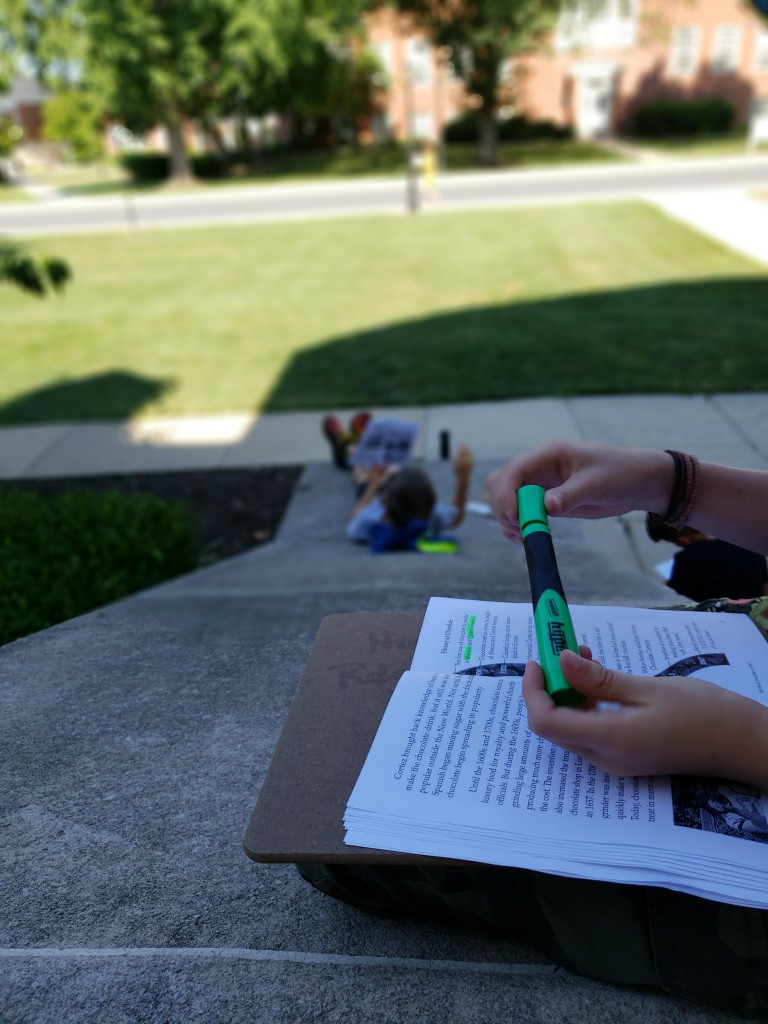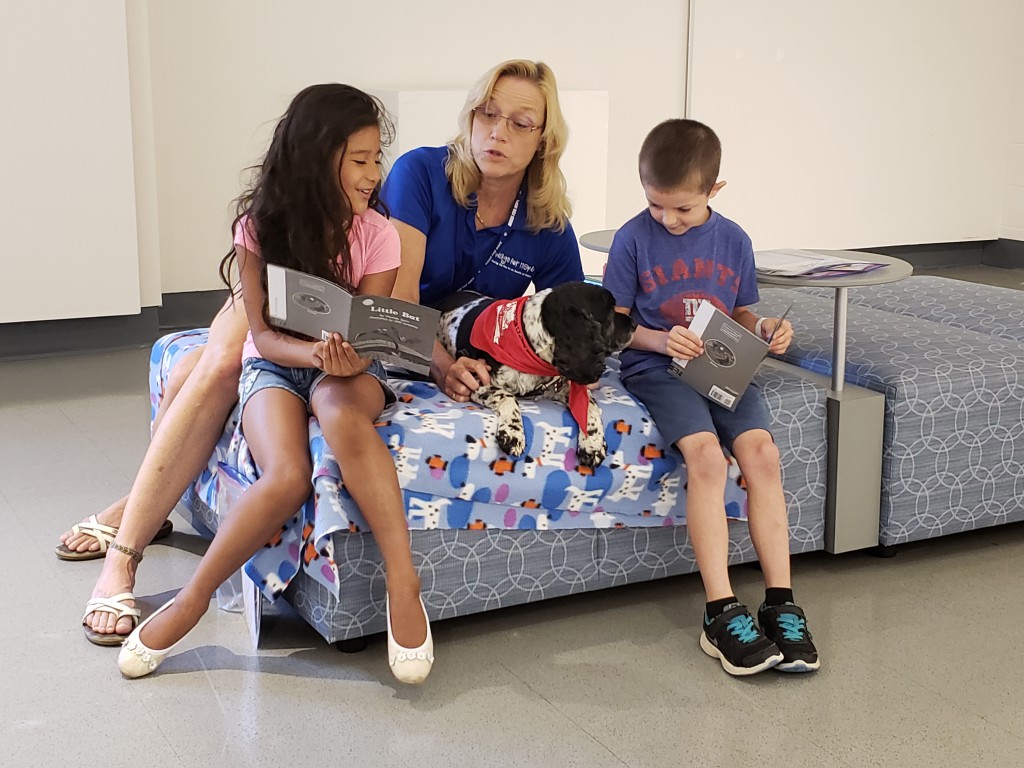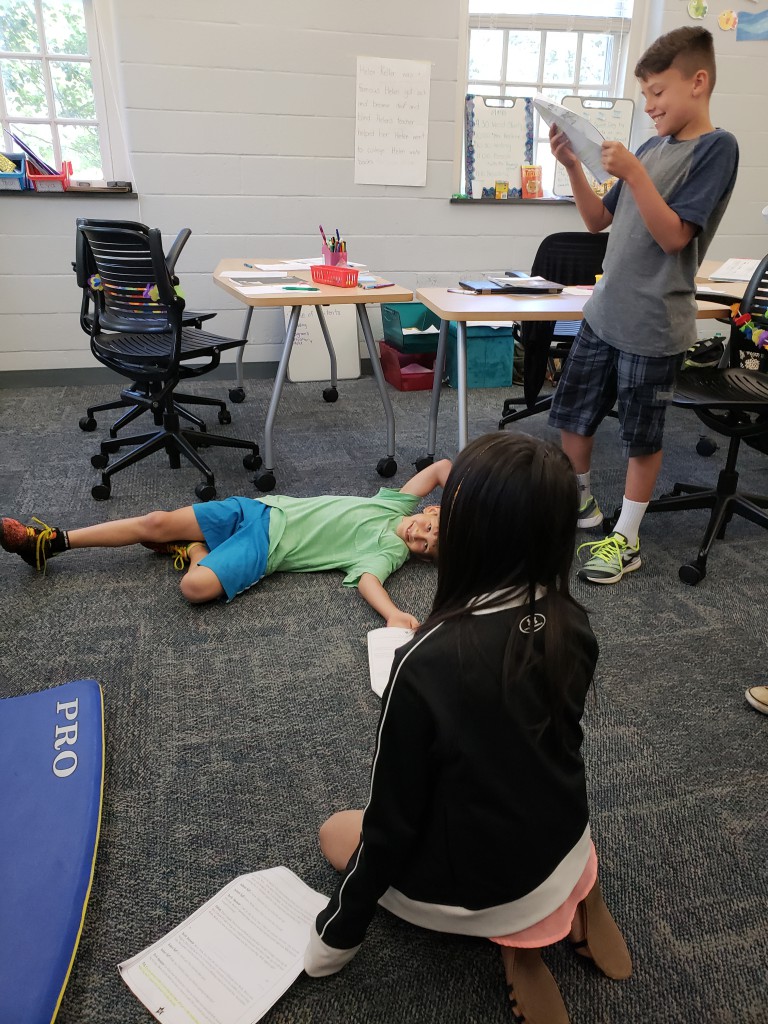Dogs, Exploring, Plays, and Stress – Reading Clinic Part 2

Aug. 23, 2018 - Getting ready for the second week of clinic, I felt a strange combination of nervous and confident. I’d survived the first week without any major disasters and felt like I’d been teaching my three students for a month.
Emily Bernstein
Program
- Reading Specialization (M.S.)
Department
- Education
The next week, I still had three students, but it wasn’t the same three. After all, this is the summer. Clinicians want to have summer break, and students and their families do too. That means vacations and trips, which all my students went on. In fact, I ended up having all four of my students for the entire day just two days out of the entire session. After going through introductions all over again on Monday, we got right back into it. We explored the beautiful campus - after all, as we told them, they were coming to classes at the college and were college students now - and still got plenty of work done!
One of the things that I love about teaching elementary students is that they (mostly) want to please and learn. My group were all motivated learners who tried hard to do their best and enjoyed reading. I’m pretty sure that if I asked them to sit down and read a phone book, they would! Of course, we tried to have a little more fun than that. One of everyone’s favorite things is reading to the dogs. I wish I could take credit for it, but they do it every year. Dogs from Wags For Hope come weekly so that the students can read to them. Even shy and hesitant readers will read to dogs! My students told me all about Dixie, the cocker spaniel who would wriggle over next to you while you read, and Thor, the Bernese Mountain Dog who lived to listen and drool. The dogs also serve an important purpose for the teachers – while we sent one or two of our students at a time , they each got to read to the dogs for 15 minutes , we could work with or assess our remaining students.

For me, one of the toughest parts of clinic was balancing the learning and the fun. After all, I only had three weeks to help these kids, but this is three weeks out of their summer, so they needed to enjoy it too! They were engaged by some work with biographies – yes, biographies can be a lot of fun! When we read about Helen Keller, they created braille messages using a pencil to poke through paper. Then, they each got to pick a person to research from a list of books at their level. One of the coolest moments I had in clinic was watching their discussion when they, without any suggestions from me, each decided to pick someone that they had never heard of. They ended up researching Bessie Coleman, Maria Tallchief, and Ramses the Great and then taught everyone about them. They also had a great time working on a reader’s theater play for The Cheetah and the Sloth (it’s a version of The Tortoise and the Hare) and deciding how dramatically to act it out!

While all this fun and learning was going on for the students, the clinicians were learning too. We were observed again the second week, this time doing one of our reading lessons. For once, the lesson I was observed on went well. Probably the toughest thing was the last week – not only were we observed during a writing lesson, we had to observe each other AND get observed coaching each other. We were learning lots of things about the teaching, but the concept of coaching was new. We’d done it once before in class, when our teacher gave us (purposefully) awful lessons to teach to each other, then we took turns coaching each other. This time, though, we had to give each other feedback on lessons that we had designed and cared about. Luckily, mine went well, I was able to give the other clinician ideas while staying positive. But I wondered…what would happen in a school situation, with a teacher who didn’t really want my feedback?

Finally, the third week was over. I couldn’t believe I was done with the elementary clinic – I felt like I had been teaching these kids forever, and I wasn’t ready to turn them over to another teacher. We had a great last day, reading a book about the history of chocolate and making mug brownies in the microwave (messy, but fun), before their parents came in to visit and the students got to share all the things that they had learned. It was so great to see their growth in just three weeks, but I knew I would miss them. Plus, now I was switching to the secondary clinic. If teaching in the elementary clinic, which is where I am comfortable, was tough, how would it be teaching students who are little adults?
I wasn’t ready for secondary, are you? Hear about a whole new program, system, and students, coming soon!
Are you ready to say Hello?
Choose a Pathway
Information will vary based on program level. Select a path to find the information you're looking for!
